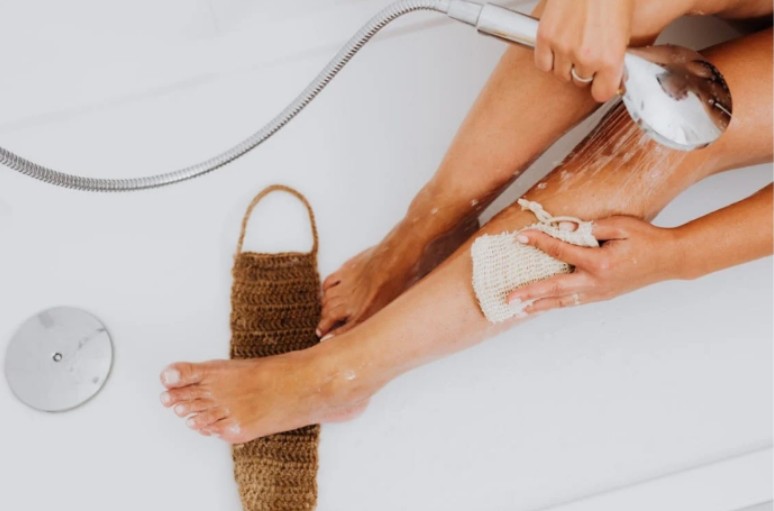Water is a fundamental element in our daily lives, whether cooking, cleaning, or staying hydrated. However, not all water is the same, and the differences can significantly impact your home and health. One of the most common water-related concerns is the presence of “hard water.” Hard water contains high levels of dissolved minerals, primarily calcium and magnesium. Though these minerals are not harmful in small amounts, over time, they can lead to various problems in your household and even affect your well-being. A shower head filter for hard water is one of the most effective ways to minimize these effects and improve water quality.
What Is Hard Water?
Hard water is water with a high mineral content, especially calcium and magnesium ions. These natural minerals are found in water as they percolate through rocks and soil and thus seep into water. Water that contains large amounts of limestone, chalk, or gypsum is usually challenging because these minerals are present in large quantities in the ground. Although the water may appear and taste the same, the impacts of hard water are more subtle and can influence many aspects of life.
If you notice that your water leaves scum on your bathtub or wash basin after use, then this is one of the earliest indications that you are using hard water. Soap, when combined with hard water, forms a scum that is difficult to wash off the wash walls, sinks, and bathtubs. Clothes may also feel stiff and dull after washing, as the minerals in the water reduce the efficiency of soap in cleaning. In the long run, this results in the wearing out of fabrics, thus fading colors.
More critically, hard water may lead to scaling in your pipes and other plumbing fixtures. Hard water forms deposits of minerals on the inner surface of pipes, showerheads, and faucets, leading to restricted water flow and frequent blockages. Other household items such as dishwashers, washing machines, and water heaters are also not spared, as the buildup of the substance makes them less efficient and more likely to develop faults. This can cause expensive damages and shorten the usage time of such crucial home appliances.
The Health Implications of Hard Water
Hard water is not considered to be dangerous if consumed. However, it can affect the human body, especially skin and hair. In hard water bathing, the minerals on the water react with the skin and leave a film on the skin, which is usually associated with dry skin and skin rashes. People with sensitive skin or skin conditions like eczema should avoid hard water, which can worsen the skin condition or bring out rashes.
Besides skin conditions, hard water has other effects on the body, particularly on the hair. The minerals can precipitate out on the hair shaft, which is why the hair feels rough, dry, and unmanageable. This can cause the hair to become brittle and dull over time and develop more breakage than normal. If you have realized that your hair is more challenging to manage or seems to have lost its sheen, it may be time to blame hard water.
Others claim that constant use of hard water may even lead to the development of certain diseases because of high mineral content, including kidney stones. Although the findings are inconclusive, it can be deduced that reducing the contact of skin and hair with hard water is beneficial in addressing many problems.
How the water hardness affects your home
In addition to its health consequences for the human body, hard water poses a significant influence on your home. The primary concern is the formation of scales on the surface of the material. This hard, chalky substance forms in areas where water tends to run, including showerheads, faucets, and pipes. If allowed to accumulate over time, it can constrict water flow, decrease water pressure, and even lead to blockages.
Scale build-up is most detrimental to water heaters. As mineral deposits build up within the heater, they can form a layer around the heating element, thus reducing the appliance’s effectiveness in heating the water. This not only leads to high energy bills but also reduces the water heater’s lifespan.
Both the dishwashers and washing machines are similarly impacted by hard water. The minerals can form a thin film layer on the dishes, glasses, and silverware, making them appear dull and dirty even if washed with water. When clothes are soaked in water containing the minerals, they may feel stiff and scratchy. They also noted that hard water shortens the lifespan of clothes and linen as fabrics become worn out quickly when exposed to hard water.
It also impacts pipes and plumbing fixtures because hard water contains minerals that can accumulate on their surface. When scale accumulates on the walls of the pipes, it decreases the diameter of the channels through which water passes. Therefore, the pressure in the water is reduced, and there is a higher risk of blockages. In the long run, this may lead to expensive repairs or require complete pipe replacement.
Dealing with Hard Water in Your Home
Fortunately, several measures can be taken to counter the impact of hard water in your home. There is no better solution than installing a water softener in the home or office. This device replaces the calcium and magnesium ions in the water with sodium or potassium ions, thus ‘softening’ the water and reducing the propensity for scale formation.
Another choice is to use a shower head filter for hard water. These filters are meant to minimize the quantity of minerals in the water you wash your skin and hair with. In this way, shower head filters will assist in preventing the roughness and itchiness associated with hard water use and the deterioration of hair health.
Another way of reducing the impact of hard water is to ensure that appliances and fixtures are cleaned and maintained as frequently as possible. Chemical products can be used to clean mineral deposits from pipes, showerheads, and appliances so that they can work properly.
Conclusion
While hard water does not pose the same health risks as contaminated water, it has problems. From the higher stress on appliances to skin and hair issues, hard water will likely affect your life somehow. Therefore, one can prevent the adverse impact of hard water on both the house and the body by investing in a shower head filter or a water softener.



